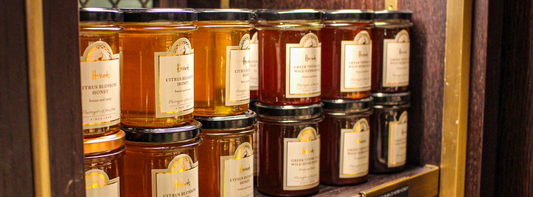Mason jars are incredibly versatile, used for everything from food storage to crafting. But when it comes to microwaving, many people wonder: Are mason jars microwave safe? Misusing glass containers can lead to safety hazards like cracking or even explosions in the microwave. In this article, we’ll uncover whether you can safely microwave mason jars, how to identify microwave-safe jars, and what precautions to take to protect your food and your appliance.
- Mason Jars: The Ultimate Guide to a Timeless and Eco-Friendly Storage Solution
- Is It Safe to Freeze Food in Glass jars? Types of Foods Can Freeze in Glass Jars
- Will A Glass Jar Break in Boiling Water?
Are Mason Jars Microwave Safe?
Mason jars are primarily made of glass, a material that can behave differently under various conditions. While some mason jars can be microwaved safely, others may not be designed to handle the rapid temperature changes caused by microwave heating. To determine their safety, it’s essential to understand the type of glass used and look for specific labeling.
Tempered vs. Regular Glass
Glass used in mason jars is often either tempered or regular.
- Tempered glass is treated to handle temperature changes better, making it more resistant to thermal shock. It’s commonly found in cookware and microwave-safe products.
- Regular glass, on the other hand, is less durable and prone to cracking or shattering when exposed to sudden heat. Older mason jars are more likely to be made from this type of glass.
Common Materials Used in Mason Jars
Mason jars are typically made of soda-lime glass, which is durable but not always microwave-safe. If a jar lacks specific labeling, assume it’s not designed for high-temperature applications.

What Does a Microwave-Safe Symbol Look Like?
To check if your mason jar is microwave-safe, look for a specific symbol on the bottom of the jar. The microwave-safe symbol usually resembles wavy lines or a microwave icon.
- Modern mason jars are more likely to have these symbols, indicating they’ve undergone testing for microwave use.
- Older mason jars or vintage designs often lack such labeling, making them less reliable for microwaving.
Factors to Consider Before Microwaving Mason Jars
Material Composition
Not all glass is created equal. While mason jars are made of durable materials, they aren’t always heat-resistant. Glass that isn’t tempered may crack under the high heat generated in a microwave.
Thermal Shock Risks
Thermal shock occurs when there’s a rapid change in temperature. For example, placing a cold mason jar directly into a hot microwave can cause the glass to crack or shatter. Always allow jars to come to room temperature before microwaving.
Lid and Ring Material
Mason jars come with metal lids and rings, which should never go in the microwave. Metal can cause sparks and damage the microwave itself. If you need a lid, consider a microwave-safe plastic or silicone alternative.
Content Inside the Jar
The contents of a mason jar matter, too. Liquids expand when heated, and sealed jars can create pressure, leading to breakage. Always remove the lid and cover the jar loosely when microwaving.

Can You Microwave a Mason Jar Lid?
Metal Lids
Metal lids are unsuitable for microwaves as they can cause sparking, potentially damaging both the microwave and the lid.
Plastic Lids
Some mason jars come with plastic lids, but not all plastics are microwave-safe. Look for lids labeled specifically for microwave use, or opt for silicone covers designed for microwaving.
If you need to cover your mason jar in the microwave, consider using:
- Silicone lids or stretchable covers.
- A microwave-safe plate placed lightly on top to prevent splatters while allowing steam to escape.
FAQs: Can You Put a Mason Jar in the Microwave?
How to Tell if a Mason Jar is Microwave Safe?
Check for the microwave-safe symbol on the jar. If it’s absent, assume the jar is not microwave-friendly. Also, inspect the jar for any cracks or imperfections that could worsen with heat exposure.
Can Mason Jar Lids Go in the Oven?
Metal mason jar lids are not designed for high temperatures and should not be used in the oven. Some silicone or plastic lids, however, are safe for oven use—always check the manufacturer’s guidelines.
Can Mason Jar Lids Go in the Dishwasher?
Metal lids can go in the dishwasher, but frequent washing may cause rusting over time. Plastic and silicone lids, if dishwasher-safe, are better alternatives for repeated cleaning.
Conclusion
Mason jars can be a convenient option for microwaving when used correctly, but not all are designed to withstand the process. Always check for microwave-safe symbols, avoid using metal lids, and be cautious of thermal shock risks. For ultimate safety, consider using containers specifically labeled for microwave use. If in doubt, alternative microwave-safe options like glass storage containers or silicone bowls might be a better choice for your needs. Following these guidelines will help you make the most of your mason jars while keeping your kitchen safe!









